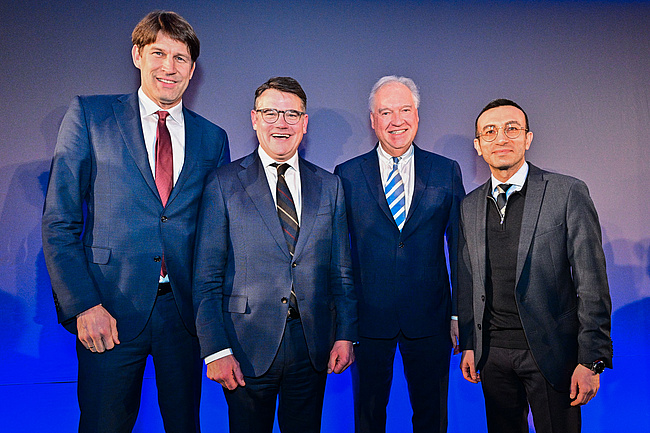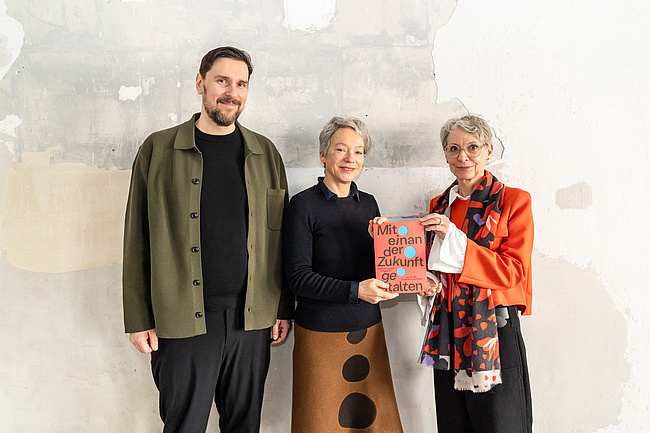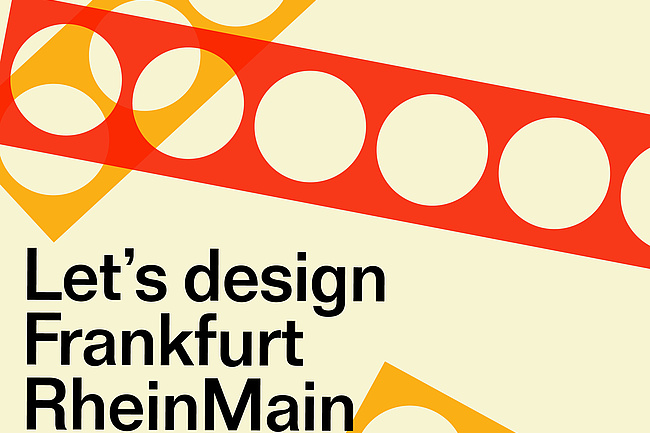- Advertorial -
Frankfurt am Main is a city on the move. Hardly any other German metropolis is so exemplary of the increasing intermeshing of international business, mobility and quality of life. With its skyline, international airport and central location in Europe, Frankfurt is much more than just a banking and stock exchange city. It is a melting pot for the most diverse forms of work - and a prime example of the challenges and opportunities this presents for the housing market.
Where working is becoming increasingly temporary, flexible and location-independent, living is inevitably changing too. As a result, Frankfurt is becoming a laboratory of the present: what must a city look like that welcomes people for three days, three months or three years - without forcing them into rigid tenancies?
Frankfurt as a magnet for skilled workers
Frankfurt attracts not only capital, but also people: Project managers, consultants, engineers, fitters, carers, scientists, lawyers and IT experts. Many do not come permanently, but in stages - sometimes for a quarter, sometimes for a year, sometimes on a weekly basis. There are structural reasons for this new mobility: Global competition requires flexible project teams, short-term deployment planning and international co-operation. Frankfurt, as the location of many corporate headquarters, as a trade fair city and as a transport hub, is a natural centre of attraction for precisely these professional groups.
What they often lack, however, is a flexible temporary home. The classic rental flat fails due to the bureaucratic effort involved, the lack of furnishings or the minimum rental period. Hotels, on the other hand, are too expensive in the long term - and too impersonal. What is needed is something in between: Accommodation that is suitable for everyday use, but without a long-term commitment. Accommodation that can be moved into spontaneously, offers living comfort and at the same time remains cost-efficient - ideal for commuters whose centre of life is often not in Frankfurt, but who want to work and live here temporarily.
Living in transition - new living models demand new solutions
Many people's lives are no longer clearly localised. It is divided into different cities, different phases of life, different career stages. Some commute regularly between home and work. Others live "on call" - wherever their project is currently playing out. Still others are looking for a fresh start but have not yet found a permanent home. This trend is particularly evident in cities like Frankfurt, where dynamism, mobility and career opportunities are closely linked.
All of these situations require new housing models: not permanent, but completely usable. Not expensive, but comfortable. Not anonymous, but uncomplicated. In Frankfurt, more and more concepts are being developed to meet these needs - from
temporary flats and private rooms to commercially organised short-term accommodation. They close the gap between a classic rental contract and a hotel room by combining flexibility with suitability for everyday use.
In particular demand are fitters' rooms in Frankfurt, which are no longer exclusively intended for tradespeople. Project managers, company employees, freelancers and many other professional groups also use this form of accommodation: furnished, well-connected, functional, bookable at short notice - and thus perfectly adapted to a working world that no longer functions according to fixed structures, but rather according to demand, working hours and project duration.
City development under pressure - how Frankfurt is responding to change
The growing demand for temporary living space poses new questions not only for private landlords, but also for the city itself. Like many major German cities, Frankfurt is struggling with a tight housing market. Living space is scarce, land prices are rising and building land is limited. At the same time, the requirements of target groups are changing rapidly - a balancing act between long-term supply and short-term demand.
City planners, investors and property providers are therefore faced with the challenge of combining permanent structures with flexible use. This means focusing less on pure prices per square metre and more on usage concepts, quality and adaptability. Existing properties can also be rethought in this sense: through conversion, partial letting, furnishing and digitalisation.
City policy is required to provide new impetus. Adjustments to building regulations, simplified authorisation procedures for temporary housing or tax incentives for the conversion of vacant properties could help to actively tackle change. At the same time, there needs to be greater cooperation between the public sector, the housing industry and technology providers in order to create intelligent, networked solutions.
The role of private providers - between entrepreneurial opportunity and social function
Private owners play a central role in this change. Many flats, granny flats or vacant properties can be transformed into functional temporary accommodation at a manageable cost. Those who rent out professionally and in a targeted manner can not only generate income, but also make a concrete contribution to relieving the housing market.
The aim is not to displace long-term tenancies, but to offer suitable solutions for temporary demand - quickly, easily and affordably. It is important that quality and transparency are right: A holiday flat or furnished flat should not only be functional, but also clean, safe and service-oriented. This creates an offer that is permanently in demand - especially in a city like Frankfurt.
Digitalisation as the key to simplification
As demand increases, so does the need for clear processes. Digital platforms, automated booking systems, electronic rental contracts, contactless key handover, digital billing - all of these simplify administration and make short-term letting suitable for the masses in the first place. Those who use modern technology save time and can act professionally - whether as individual landlords or companies.
However, digitalisation is much more than just increasing efficiency - it is becoming a strategic success factor. By using modern technologies, providers can not only optimise operational processes, but also improve the user experience: for example, through intuitive apps for booking accommodation, personalised recommendations or transparent pricing. Smart living features such as remote control of heating and lighting or integrated concierge services also increase attractiveness - especially for an urban, tech-savvy target group.
As a city with an affinity for technology, Frankfurt offers the ideal conditions for this: a digitally savvy population, reliable broadband infrastructure, 5G expansion and a high density of mobile workers and business commuters. The location also benefits from its proximity to numerous corporations, start-ups and international institutions - an environment that promotes openness to new living models and favours technological developments.
Those who enter the market here with a clever, technology-supported concept can secure clear competitive advantages. After all, it's not just guests who are making higher demands - investors and platform operators are also increasingly focussing on digital standards and transparent processes. Those who fulfil these requirements will stand out from the competition and gain the trust of a demanding target group - from tradespeople to executives, from freelancers to temporary project managers.
A look into the future shows: Digitalisation in the temporary living sector is only just beginning. Artificial intelligence, IoT systems and networked platform solutions will have an even greater impact on letting in the future - from predictive maintenance and dynamic pricing to fully automated booking and billing processes. Providers who anticipate this development at an early stage are ideally equipped for the next steps on the way to a smart, scalable residential offering.
Frankfurt as a reflection of a new world of living and working
Frankfurt is more than just a place to work - it is a place where people settle temporarily to fulfil their tasks in a highly mobile environment. This reality calls for new living solutions that are somewhere between a hotel and a flat, between everyday life and transition. The demand for furnished, ready-to-occupy, short-term rental accommodation is high - and will continue to rise.
Those who recognise this development are offering more than just four walls. They create a temporary home - a place that is not only functional, but also offers security and orientation in everyday life. Whether for project work, professional reorientation or temporary assignments:
Flexible living models must meet the demands for comfort and furnishings as well as the desire for uncomplicated availability.
There is a great opportunity in this change - for landlords, companies, urban developers and not least for all those who experience Frankfurt not as a home, but as a temporary centre of life. After all, anyone who manages to design temporary living as an experience with quality of stay, rather than just as a temporary solution, will strike a chord with the times. It's about rethinking urban stays - through smart concepts, flexible offers and a clear focus on the needs of modern nomads












